
GUEST EDITORIAL
Hello everyone. To those that responded to my last composition; thank you. I have received and read your emails and will respond soon. I want to be able to address each one of you individually and completely.
Now…For another issue facing our industry…
A little while back, a national bank went to “No Contact” for all accounts. Sure… We all understand why they do this. It limits exposure to 3rd parties and limits the possibility of the wrong thing being said to the wrong person. We get it. It also gives them a scapegoat when contact IS made. “Hey! We told them NO CONTACT!” “They knew they weren’t supposed to talk to anyone!” It puts the liability on the agency…Supposedly…
Well, this national bank also assigns work through forwarders. Many of us can even live with that too. I know I have before. But now you bring into the mix a separate group of people through which the communication is supposed to flow. From the bank, to the forwarder through whichever proprietary portal the bank is using, down to the agent through the same or another portal that the forwarder uses, and then finally into the agents’ database of record.
Now, bring into the picture a Voluntary Repo assignment. This is defined by the Council of Repossession Professionals here: <http://www.councilofrepossessionprofessionals.com/voluntary_3-23-16.pdf>.
This is the industry-wide recognized definition as created by a joint effort between the different national and state acronyms… um. I mean associations (ARA, TFA, AFA, CALR, FLACARS, etc.)
 So now there is a contradiction between the contact needed for confirmation of appointments with a voluntary repo and the policy of this national bank for no contact. Hmm…
So now there is a contradiction between the contact needed for confirmation of appointments with a voluntary repo and the policy of this national bank for no contact. Hmm…
Let me give you two examples. Both involve this same bank and the same forwarder. I can’t really place any blame on the forwarder as they seem to be doing what they can with whoever is in charge at the bank telling them NO.
Example 1:
Bank sends over a voluntary repo assignment to forwarder for a pull behind camper. No contact, no phone number. We request a phone number. Forwarder certifies to us that the bank “certified” to them that the customer has it there, the arrangements are made, and to go pick it up between 8am and noon, on this particular day. We tell the forwarder that we will trust them on this and there will be extra fees assessed if the situation is not as described. They understand. Our agents get there, the debtor’s wife is locking the house to leave. She informs us that she called the bank in January and told them to come and get it. It was now mid-May. She said that they were moving and her husband was already out of town for work.
The bank told them in January that someone would contact them regarding the arrangements to turn over the camper. After a couple of  months and no contact from the bank, they packed the camper ready for their move and would take it with them instead of leaving it. So now, I had two agents, an hour away from our office, to secure a voluntary, that they had to assist in cleaning out for nearly two hours, after driving an hour there, and then to drive an hour back with the cleaned out camper. Forwarder got a bill for an Involuntary instead.
months and no contact from the bank, they packed the camper ready for their move and would take it with them instead of leaving it. So now, I had two agents, an hour away from our office, to secure a voluntary, that they had to assist in cleaning out for nearly two hours, after driving an hour there, and then to drive an hour back with the cleaned out camper. Forwarder got a bill for an Involuntary instead.
Example 2:
Forwarder sends another order over, this time for a field call on a Class A diesel pusher. We’re again told we cannot contact. We tell them we’ve had issues in the past, they understand, and again certify that they will have the motorhome there and unlocked for pictures and a condition report. This one is about an hour away as well. My agent gets there; vehicle is locked. He takes pictures of the outside and reports what he can of the condition.
We report back to the forwarder and tell them the field call is done, here’s the $175 bill for the field call. The vehicle was not unlocked as the bank stated and it will be another $175 if you need us to go back out. They tell us a few days later that the bank approved another $175 for us to go back there and the customer has it unlocked this time. Agent goes back out there. Still locked. Another $175 charged… Oh well. We tried. A couple days later, forwarder calls, says at 10-something that morning, hey, the customer will have it unlocked until 1pm. First of all, it was already supposed to be unlocked. Secondly, this is an hour away, with two hours notice.
No, I’m not dropping what I’m doing for a no contact already misrepresented field call. They get another $175 approved (for the third time now) and state that the customer has left it unlocked now for us to go by and take interior photos. Agent goes back out, enters the motorhome, starts taking pictures. Then he sees a 3×5 index card with the words “wear a mask.” He starts looking around and finds another index card with a handwritten note. It states that “to whoever is driving this motorhome, I have tried to clean the black mold and mildew.” Then the customer comes outside and meets my agent. She then informs him that she has cleaned the black mold from this vehicle twice but it keeps coming back. Agent then called in to our office where he was told to not enter the vehicle again and that whatever pictures he was able to take will be all that are taken.
Now this bank and forwarder are being assessed a $500 HAZMAT fee for the situation that could have been easily prevented by  COMMUNICATION. With how quickly the customer wanted to tell my agent that the vehicle was hazmat, I’m sure that this was communicated to the bank. In fact, that is probably why they wanted a field call first, instead of the repossession. If it’s bad, leave it there. Write it off, and make it someone else’s problem. The response from the forwarder was a quick “We appreciate your efforts. We understand your frustration. We have sent the information over to the bank and our managers for approval.”
COMMUNICATION. With how quickly the customer wanted to tell my agent that the vehicle was hazmat, I’m sure that this was communicated to the bank. In fact, that is probably why they wanted a field call first, instead of the repossession. If it’s bad, leave it there. Write it off, and make it someone else’s problem. The response from the forwarder was a quick “We appreciate your efforts. We understand your frustration. We have sent the information over to the bank and our managers for approval.”
These next two examples involve the same bank, but two other forwarders.
Example 3:
Fifth wheel travel trailer is left at a campground. We’re told it’s a voluntary. Agent drives through campground, about 30-45 minutes away, and finds the camper. It’s bricked up on a cinder block foundation. Power and water are hooked up. A second trip with another agent and a few hours to spend on site, we had the concrete block removed and stacked off to the side, the hookups disconnected, and we got our unit. What was supposed to be a voluntary turned into a most of the day ordeal to carefully remove each block from under the camper while using the wrecker, jacks and jack stands to lift the frame of the trailer to take the weight off of the blocks. Needless to say, that was another $1000 recovery.
Example 4:
A pre-2000 model class A motorhome with a Chevy gas engine. We get the order. It’s a voluntary with keys. Sitting in the customers front yard. We were told it’s been sitting for a little while, but it has keys and should be driveable. Again, no contact. So myself and an agent go about 100 miles to the location, thinking we can jump it off if needed, crank it up and head back home. Of course, the forwarding company had sweet talked us into doing this one since they had no other agency available to handle this type of vehicle as the address is normally outside of our coverage area.
So we get there and the customer comes outside. He’s an older gentleman who then told us that he and his wife had stopped using it about a decade ago when their health declined and they didn’t need it anymore. Then we find out that another agency had already been by there and took the keys and told the customer that they would be back with a heavy duty truck to pull it. After calling the forwarder to inform them, we’re told we’re going to get extra pay for having to put up with the situation and they approved the heavy-duty wrecker fee. Of course a 25-ton wrecker then had to be dispatched to our location, and that just so happened to be one of the local company’s that we know. We used them not because of any preferential favoritism or discounts, but because they were literally the ONLY company that would touch a motorhome.
Due to the size and structure of these RV’s, one wrong move, and you’re buying that RV. The large fiberglass panels are expensive and even more so to replace. If you hit a bump or a pot hole too hard, you can damage the bottom edge of the rear panels. On top of that, you have to lift it up, climb underneath, and remove the driveshaft so it’s not spinning while the rear axle is rolling and causing transmission problems. No local company to the customers address would even consider touching the vehicle for less than $2000. Our local guy did it for $1000 because we were also there to help and assist and put in effort on our end. We never charged a mark-up on any of the tow bills. We only bill for our repossession services and provide the receipt to the client for any additional fees to prove that there is no mark-up.
more so to replace. If you hit a bump or a pot hole too hard, you can damage the bottom edge of the rear panels. On top of that, you have to lift it up, climb underneath, and remove the driveshaft so it’s not spinning while the rear axle is rolling and causing transmission problems. No local company to the customers address would even consider touching the vehicle for less than $2000. Our local guy did it for $1000 because we were also there to help and assist and put in effort on our end. We never charged a mark-up on any of the tow bills. We only bill for our repossession services and provide the receipt to the client for any additional fees to prove that there is no mark-up.
So what do we take away from all of this. Well, this bank that has also been called out in articles regarding “Operation Choke-Point,” so I think we can all see some issues with the type of culture that is emanating from this type of organization. Of course, I don’t know where this problem lies. Is this with the way the CEO runs the company? Is it a problem in the repo/collections department? Maybe a higher up employee had their car or a relatives car repossessed and they have an axe to grind? Unfortunately, I don’t think any of us will ever get a straight answer.
I have always told my employees that I would never ask them to do anything that I would not do myself. I value my health; I value my reputation; and I value my honor and integrity. It appears though, that our clients, or at least this one, only care about a set of numbers on a whiteboard and what their performance bonus will be at month’s end.
I have already informed this forwarder that I will still be their vendor, but that I will no longer accept any more assignments for this bank, period.
Now I have a message to my competitors that will read this and think “Hey, now that he’s not going to do that work, I’ll take it and make that money.” Well, it’s this simple… If I, as the owner of a fully vetted and compliant agency, turn down work, there is a reason for it. I have the trucks. I have the staff. I can scale up or down based on my workload at any given moment. If I have turned down the work, you might want to stop and think WHY I turned it down…You might just save your own company and help save this industry.
Cheers and happy hunting!
-Danny Redding, CEO
Recovery Columbus, Inc.
danny@rcihq.com


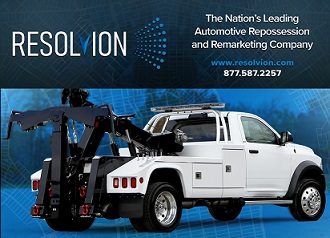
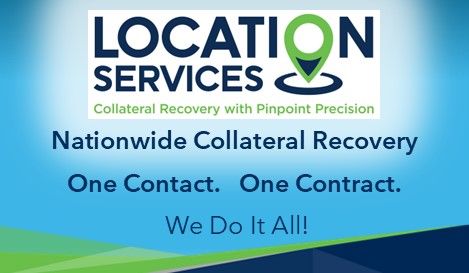


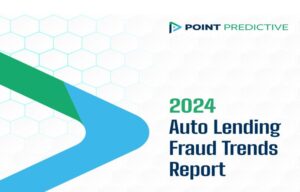
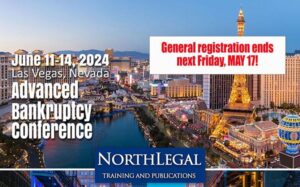

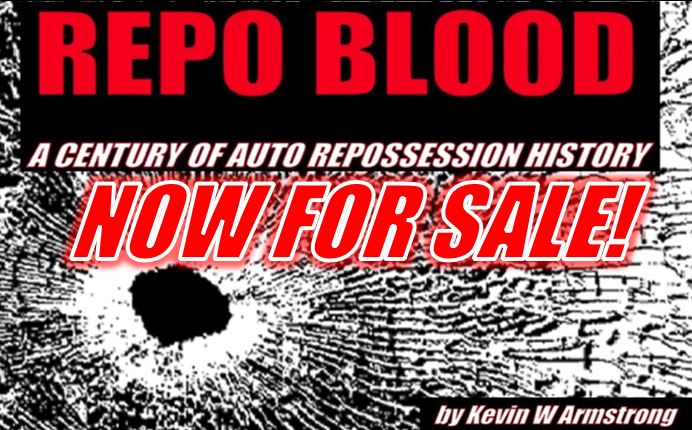

Facebook Comments